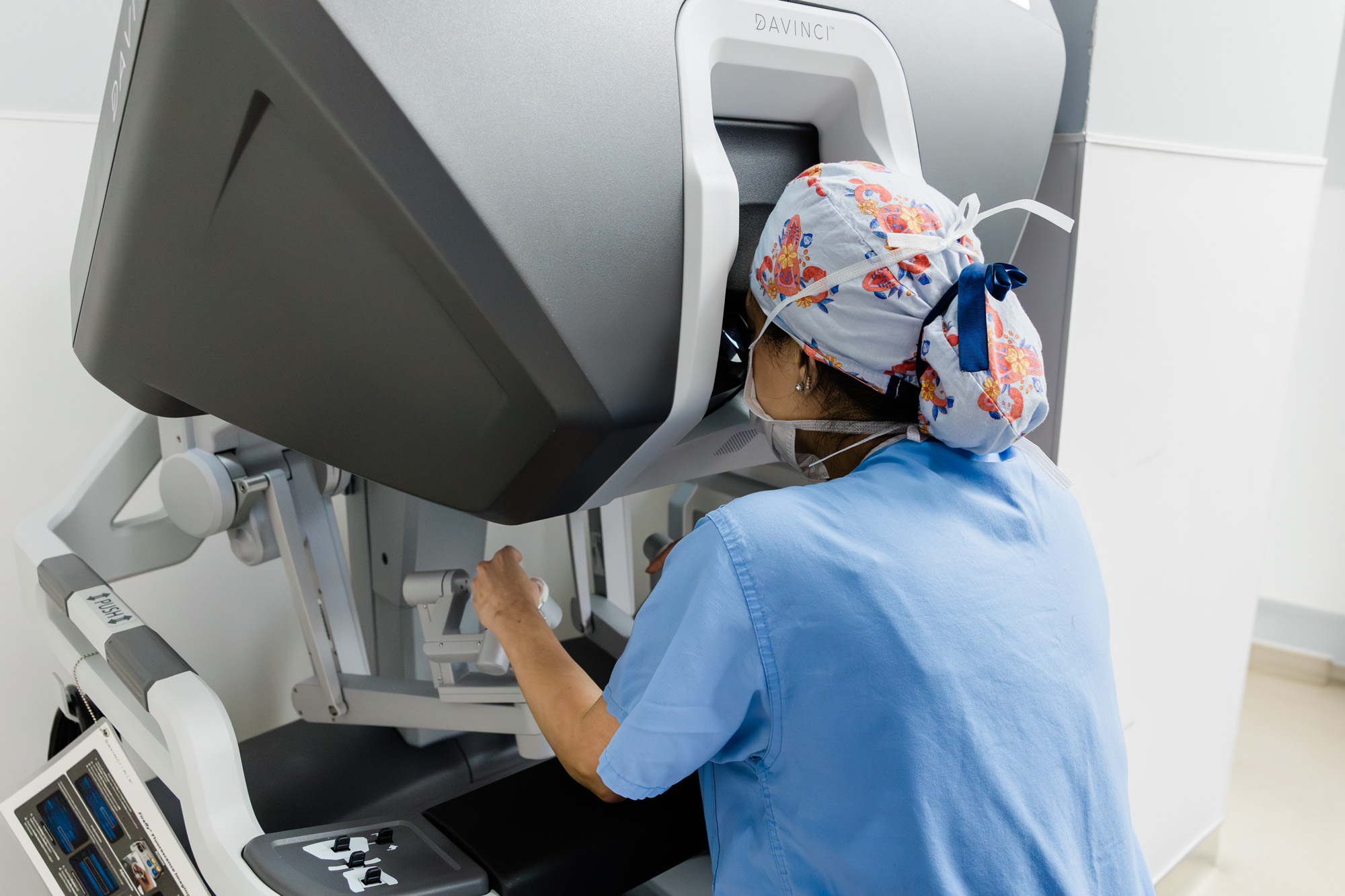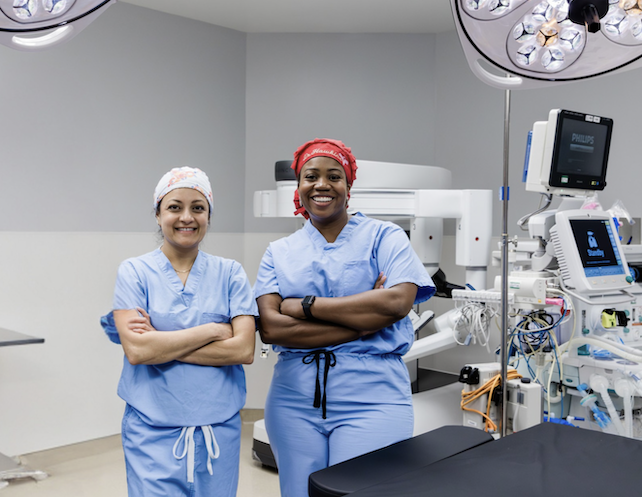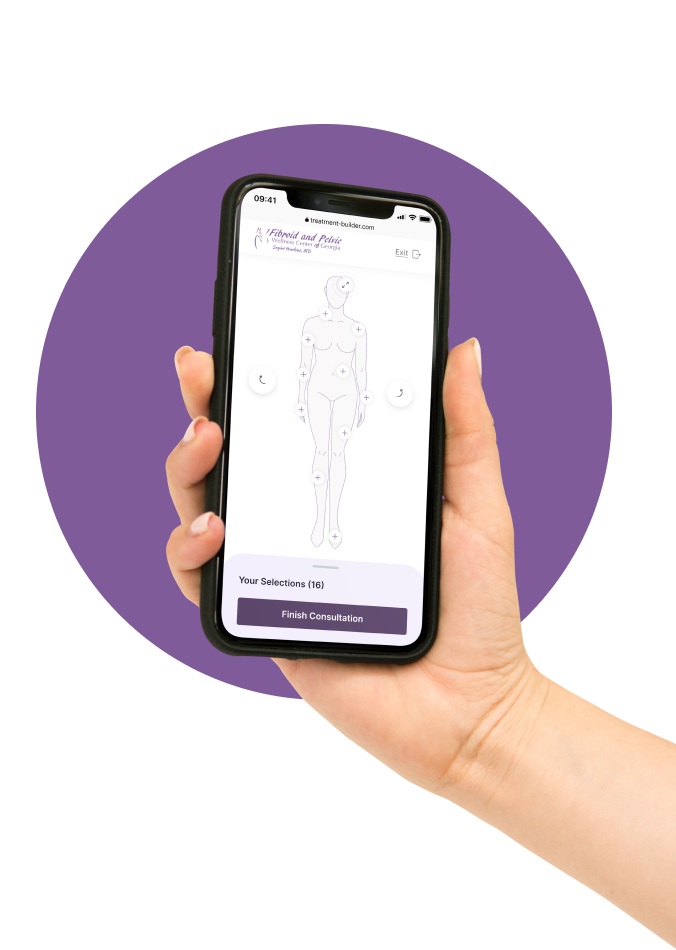Minimally invasive surgery involves performing surgical procedures through small incisions using specialized instruments and cameras. It aims to reduce trauma to the body compared to traditional open surgery.
Minimal Invasion. Maximum Results.
Concerned about post-surgical scarring? We have the answer. Minimally invasive surgery minimizes cutting through skin and tissues with alternative techniques to traditional surgery. This includes using smaller incisions and equipment to help reduce potential pain, complications, recovery time—and scars.
Dr. Hawkins founded the Fibroid and Pelvic Wellness Center of Georgia with the focus of providing women’s health treatments using advanced, minimally invasive techniques.
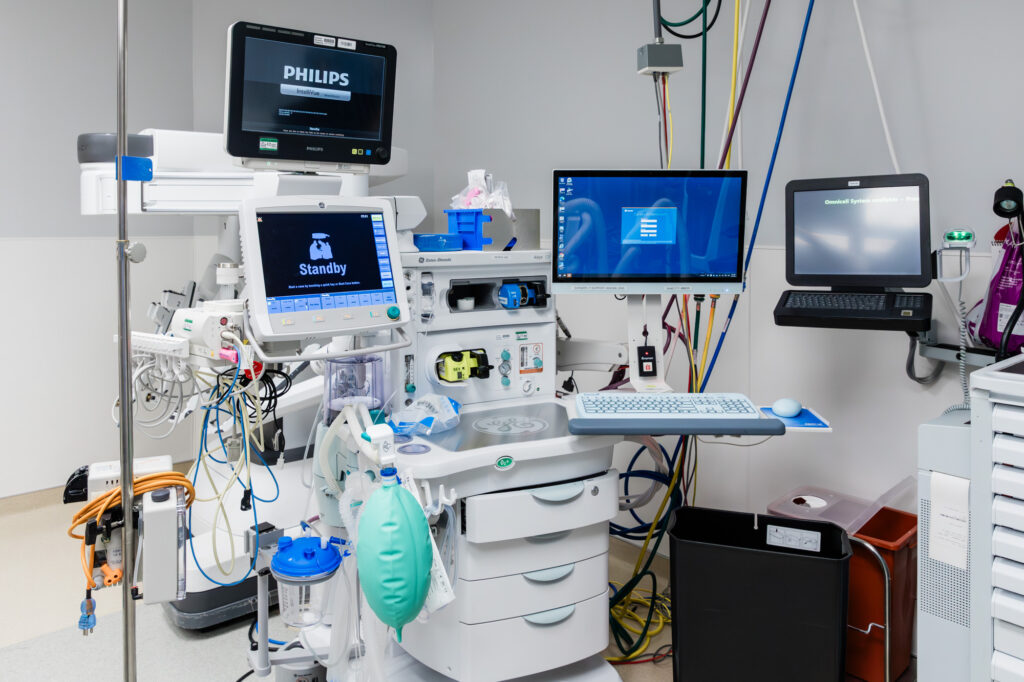
What to Expect
- Smaller incisions can result in minimal scarring compared to open surgery
- Patients typically experience quicker recovery times
- Associated with less postoperative pain and discomfort
Our Process
While open surgery almost always requires general anesthesia, some minimally invasive procedures don’t. You may only need local anesthesia at the incision site. Hysteroscopic surgery may not require general anesthesia at all and can be performed under sedation.
The small incisions allow endoscopes and tiny surgical instruments easier access into the body. Smaller incisions make for easier recovery with less pain and risk of complications. In general recovery tends to be much faster. You can often go home the same day, and the smaller incisions heal in weeks rather than months.

Featured Procedure
Laparoscopy & Robotic Surgery
Laparoscopic and robotic surgeries use fewer incisions and require less downtime, making it easier for you to receive the care you need.
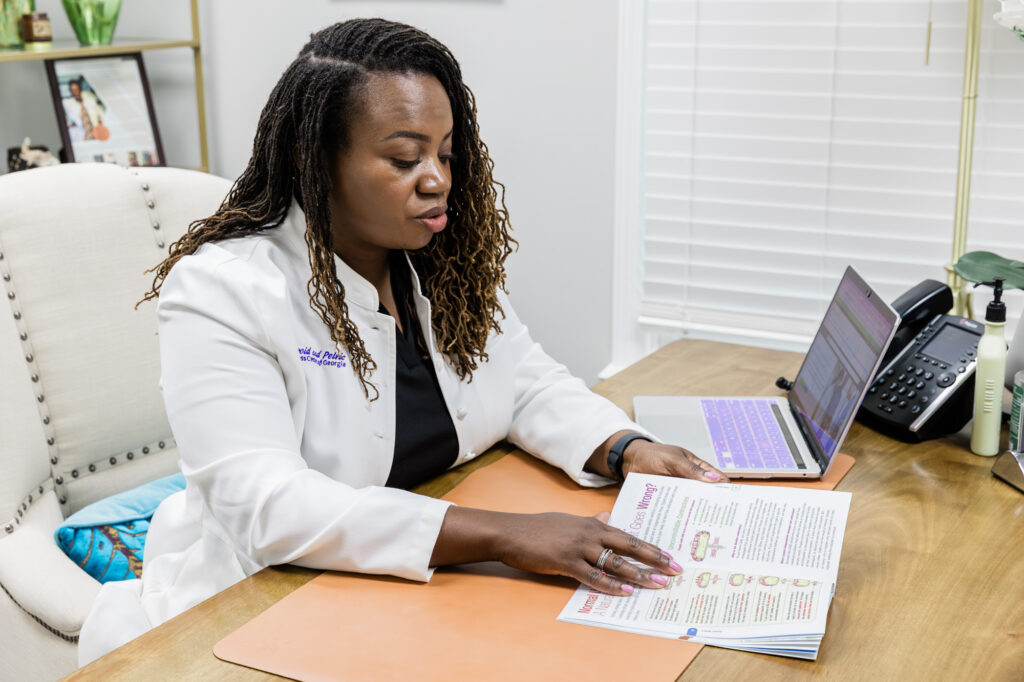
Featured Procedure
Radiofrequency Ablations
Discover a minimally invasive method of treating uterine fibroids! Radiofrequency ablation destroys fibroid cells without the need for surgery.
Our Promise
Minimally Invasive
The tools Dr. Hawkins’ team uses to perform minimally invasive surgery in Atlanta include endoscopes, trocars, insufflators, and other small surgical instruments that reduce the size of incisions.
Advanced Technology
We perform several gynecologic procedures using the da Vinci Surgical System. The da Vinci Surgical System allows surgeons to perform delicate procedures inside the body with a greater range of motion.
Faster Recovery
Our minimally invasive surgical techniques typically lead to quicker recovery times, helping patients return to regular activities sooner.
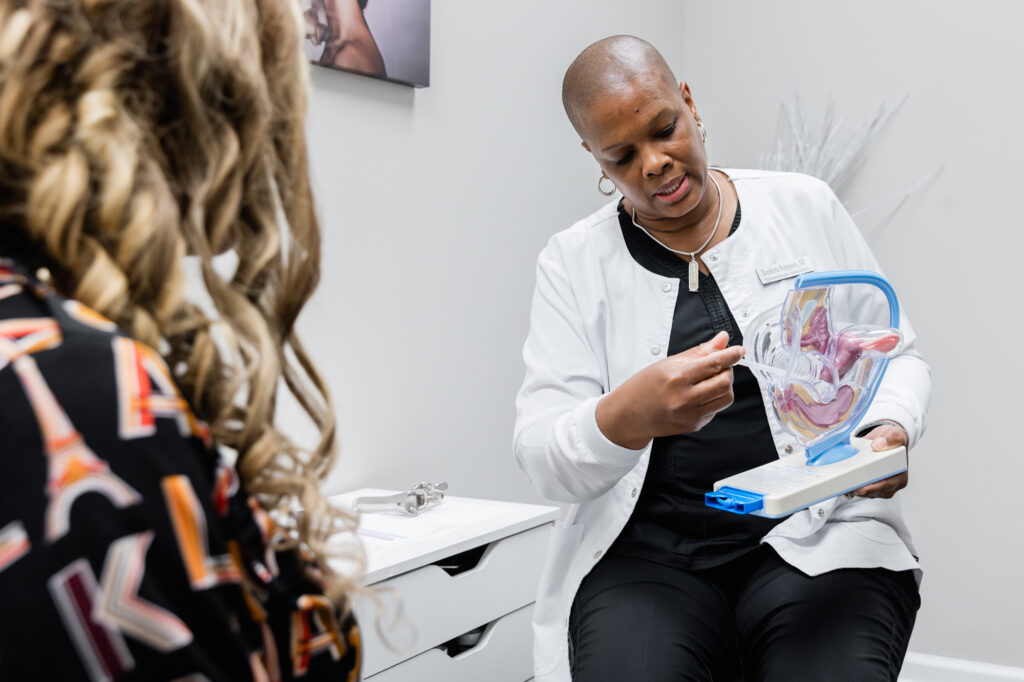
Just remember when you have a specialty issue you need a specialist doctor to feel like a new person. Choosing Fibroid and Pelvic Wellness Center of Georgia will change your life.
Dannette L.
Experience Excellent Gynecological Care

Conditions We Treat
Our Atlanta-based practice is a full-service provider dedicated to leading the way in women’s pelvic health and wellness.
About Our Practice
Dr. Hawkins and her team are women’s health advocates dedicated to providing quality full-service gynecological treatment.
The Fibroid and Pelvic Wellness Center of Georgia takes on many of the most complex procedures, via minimally invasive surgery in Atlanta, that other gynecological doctors won’t, and we’re often asked to offer second opinions. We also provide patients with the full Emsuite of aesthetics services including Emface, Emsculpt NEO, and Emsella.

The Team at Fibroid and Pelvic Wellness Center of Georgia
Get to know Dr. Soyini Hawkins, MD, and her team of surgeons, nurse practitioners, medical assistants, and office staff. They’ll help you prepare for your minimally invasive surgery in Atlanta.
Frequently Asked Questions
Still have questions? Contact us.
Some advantages include smaller incisions, reduced pain and scarring, shorter hospital stays, quicker recovery, and lower risk of complications compared to open surgery.
Minimally invasive techniques can be used for a wide range of surgeries, including gynecological procedures such as hysterectomy, myomectomy, ovarian cyst removal, and endometrial ablation, among others.
Most people are candidates for minimally invasive surgeries, especially people who aren’t candidates for traditional open surgery. However, people with certain heart and lung conditions may not be ideal candidates because laparoscopic surgery involves pumping gasses into your abdominal cavity to separate the abdominal wall from your organs, which may cause further heart or lung issues.

